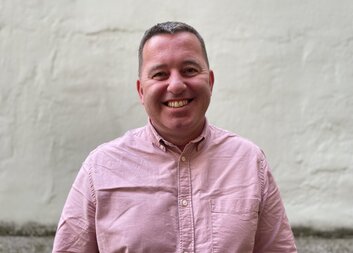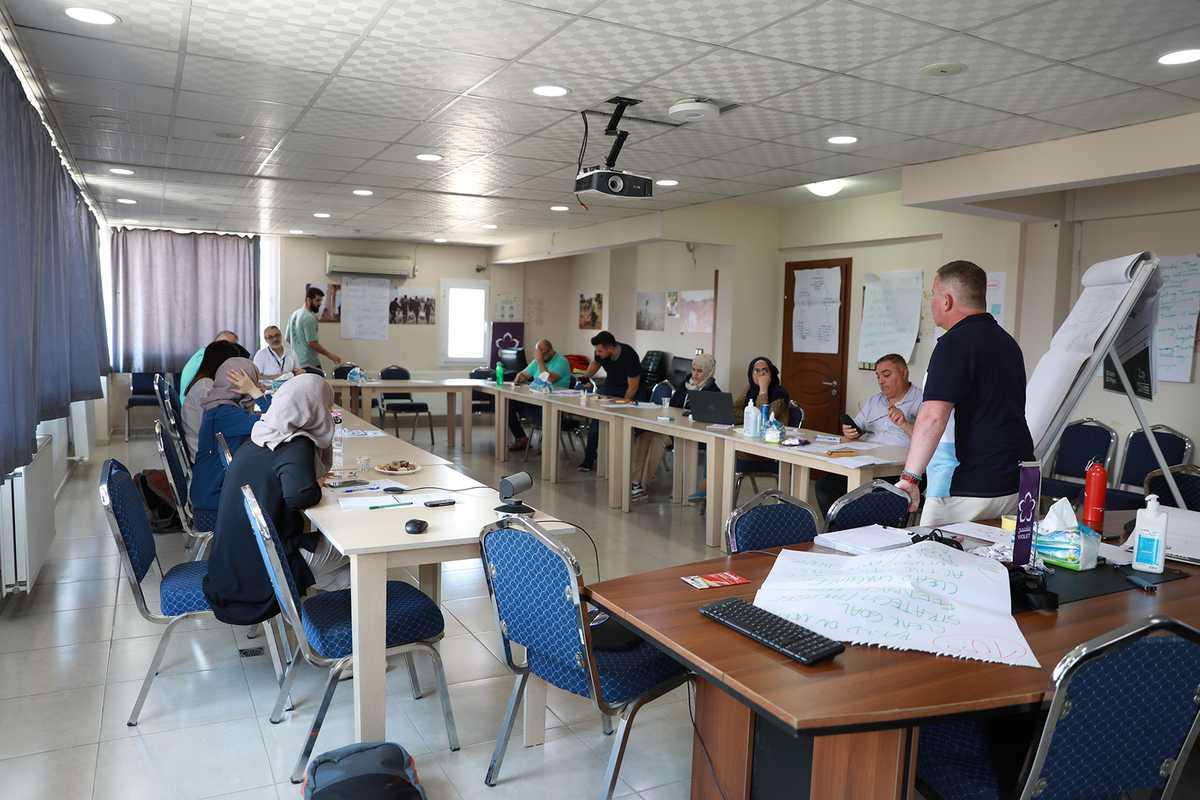The civil war in Syria has been going on for more than 11 years. As a result, young Syrians have spent a large part of their lives at war. Yet they have not lost hope for a better future. Local non-governmental organizations help them to become active members of society. Caritas Czech Republic supports the work of 30 local organizations that focus on youth thanks to the support of the European Commission. Our collaborator Václav Šneberger, who has been working as a lecturer and methodologist in the field of education and development, recently travelled to the Turkish-Syrian border.
Václav, you recently returned from a business trip to the Turkish-Syrian border. Can you describe what was the purpose of your trip?
I went to the Turkish-Syrian border to share my experience as a lecturer to the NGOs there. Our partner organisation, Violet, supports youth Syrians from the refugee community there. Apart from humanitarian assistance, they are also involved in supporting other NGOs in northern Syria. Violet organizes development activities for young people to motivate them to be more active members of society. However, this shift towards development work is new for most of the organisations involved which is why they lack certain skills. So I visited them to share my know-how on how to work with young people and how to organize a workshop for them.
What do you see as the key role of young people?
They are our future. Young people have the desire and energy to make a difference because they have their whole lives ahead of them. On the other hand, older people like me are doing what they are used to. That is why it is important to support young people to become actively involved in civil society. In Syria, of course, the situation is more complex, which is why we are helping local NGOs here through the European Commission to introduce young people to different forms of active citizenship.
What were the main topics of your training?
It was a three-day practical seminar attended by 16 people. I aimed to give them a guideline to start with that would make their job easier. At the same time, I structured the workshop so that the participants could then apply it to a diverse group of people.
On the first day, we focused on facilitation skills, which means how to bring a group of people together and how to communicate with them. We also talked about the topics young people are interested in and how to lead the group. The other two days we focused on teaching skills. I talked about how to build a successful educational workshop.
What were your thoughts after ending the seminar?
What resonated with me the most was their enthusiasm. Our project that focuses on young Syrians is relatively new and I am always happy to be part of it so early. The people who attended my workshop were excited to meet with someone who can introduce them to an innovative concept of workshops. They were also happy to meet each other. All of them come from families who were displaced by the war and now living in the refugee camps. The opportunities there are not that great, but their motivation is inspiring.
Was it the first time you went abroad to share your experience?
I have several foreign experiences. I worked in the Balkans in the 1990s and I was working in Central Asia, in Mongolia, for some time as well. At the same time, I also have transformational experience in the Czech Republic. From my point of view, people from countries going through regime change appreciated it. The common experience allows me to be a bit more receptive.
Does your experience from Central Asia and Balkans help you in the Middle East as well?
My experience is very much transferable. It is important to remember that there are gender-divided communities. When it comes to interacting with women, I do not want them to get uncomfortable. That is why I use written feedback rather than a spoken one. Western cultures used to show emotions, but people in the Middle East think it is a weakness. These are all transferable experiences. It is important to keep cultural differences in mind.
You mentioned at the beginning that development aid is a new experience for local NGOs. Is there something they are very good at?
The people who are involved in youth activities here come from the refugee camps or the settlements for displaced people. This gives them credibility. I will never have such authority here as a foreign lecturer. They indeed lack experience in methodology, but they make up for it with their energy and enthusiasm. They are very motivated to face the difficult situation and do something about it.
How did you like the visit to the Turkish-Syrian border?
I really enjoyed it because I like to discover new places. However, the heat was a big challenge for me. Syrians and Turks are very hospitable, I was far away from tourist destinations, so the locals stopped me quite often, invited me for tea and we chatted for a while. Their cuisine is very tasty, I tried so many new things in those few days.
Thank you for the interview.
Interested in interviews like this? Read more:
- I admire Syrians for their perseverance, says Kateřina Velíšková
- Behind the scenes of Caritas Czech Republic: Meet Delgermaa, our project manager from Mongolia
- Behind the scenes of Caritas Czech Republic: Meet our Senior Livelihoods Advisor, George Jend








